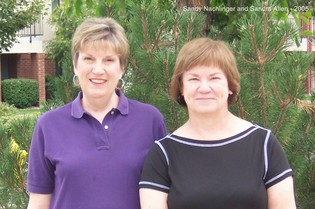I.O.U. SEX by Sandy Nachlinger and Sandra Allen is an awesome read and super awesome promise! In this semi-autobiographical hot read, I.O.U. SEX by Sandy Nachlinger and Sandra Allen is about best friends June, Kiki, and Peggy graduated from ...
Read More »Tag Archives: reading
Feed SubscriptionThe Difference Every Boss Can Make
How seemingly insignificant moments can have a lasting impact on your employees' lives. The smallest moments almost always make the biggest difference—whether in our lives, or in the lives of others
Read More »The Difference Every Boss Can Make
How seemingly insignificant moments can have a lasting impact on your employees' lives. The smallest moments almost always make the biggest difference—whether in our lives, or in the lives of others
Read More »Could Human and Computer Viruses Merge, Leaving Both Realms Vulnerable?
Mark Gasson had caught a bad bug. Though he was not in pain, he was keenly aware of the infection raging in his left hand, knowing he could put others at risk by simply coming too close
Read More »Want to Be More Inventive? Think Like a Fifth Grader
A cognitive psychologist has developed a toolkit to help anyone be more inventive by shedding their preconceived ideas and thinking like a kid. Every entrepreneur is trying to do something new and better. If your business doesn't improve in some way on the other dry cleaner in town or other app in the space, then why bother starting it, right?
Read More »The Most Influential Business Book Of The Last 30 Years
In the 30 years since In Search of Excellence was published, critics have found flaws in its methodology, its content, and even its writing style.
Read More »Is the 54-Hour Start-up a Myth?
How does Startup Weekend turn strangers into teams into companies in less than three days? A review of the new book that documents the process. Can anyone really start a company and go from "concept to creation in 54 hours?" Doing so is the precise goal of the event Startup Weekend (which I covered in April 2009 ).
Read More »Edith A. Miller’s Cosmopolitan Origins
How a round-trip, 12,000-mile journey revived a clothing line. img.thiswrapper {margin-bottom:10px;} This fall, Barneys New York and J.Crew began selling a new women's fashion line called Edith A. Miller--and in doing so gave new life to a forgotten, 91-year-old Pennsylvania maker of white undershirts
Read More »The Science of Earworms, or Why You Can’t Get that Damn Song Out of Your Head
They go by many names: Brain worms, sticky music (thanks Oliver Sacks), cognitive itch, stuck song syndrome. But the most common (if also the most repugnant) is earworms, a literal translation from Ohrwurm , a term used to describe the phenomenon (and perhaps bring to mind an immediate association with corn earworms ).
Read More »October 2011 Advances section: Additional resources
The Advances section of Scientific American 's October issue includes coverage of preschoolers' innate sense of the scientific method, a report suggesting the U.S. Environmental Protection Agency is failing to do enough to regulate contaminants in tap water, recently re-discovered texts by Archimedes, and more. For those interested in learning more about the developments described in this section, a list of selected further reading follows.
Read More »The Magic of Mojo
What happens when a software company owner, a roller coaster designer, and a condom maker walk into a monastery?
Read More »Make Your Sales Team Soar
%excerpt% Read more: Make Your Sales Team Soar
Read More »Scribd Debuts Float, A Netflix-Style Competitor To Pulse, Flipboard, Instapaper
Today, document-sharing service Scribd, the world's largest social publishing site with more than 75 million monthly readers, launched Float, an iPhone and web content-reading app that's taking aim at the likes of Pulse, Flipboard, and Instapaper. Like those popular apps, Float enables users to read content from a varity of sources--such as Float's 150 publishing partners, which include AP, Scientific America, and yes, Fast Company--and access the content in one centralized reading platform.
Read More »Romance Novels Are Steaming Up E-Reader Screens
Photograph by Douglas Sonders How Angela James, head of Harlequin's new romance e-book imprint, has forged a novel business model in paperless publishing. H ere are some things you may not have known about the $1 billion business that is romance publishing today: Divorced women read far fewer romance novels than single and married women do. Romance readers buy in volume and velocity, making them optimal digital readers
Read More »"I’m Feeling Lucky": Google Employee No. 59 Tells All
We interview Douglas Edwards, Google's brand manager from 1999 to 2005, about his new book and discuss the challenge of humanizing information technology, Sergey Brin's anatomically correct cow costume, and how Google+ might succeed where orkut, Google's first social network, failed. After spending years as a journalist for the San Jose Mercury News and Marketplace, in the late 1990s, Douglas Edwards became restless
Read More » Philippe Matthews Show Guru Advice, Author Reviews, Tech Reviews, Entertainment News
Philippe Matthews Show Guru Advice, Author Reviews, Tech Reviews, Entertainment News


